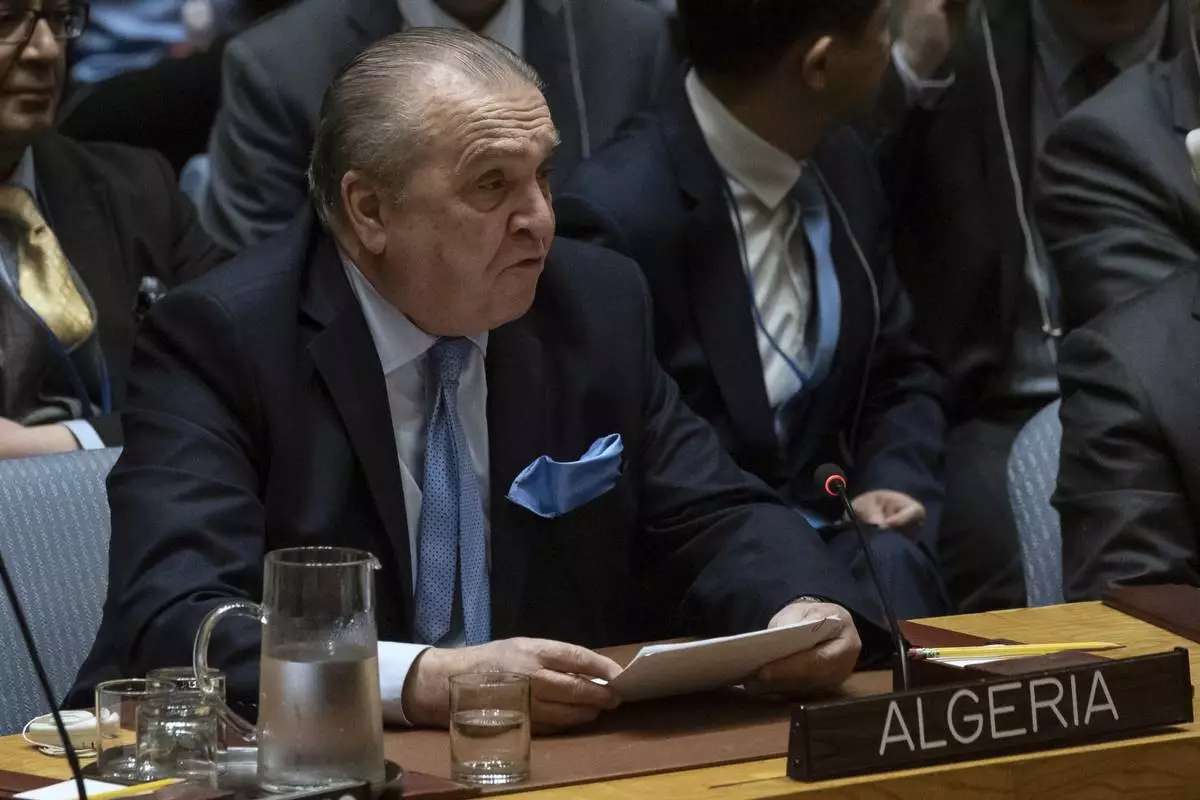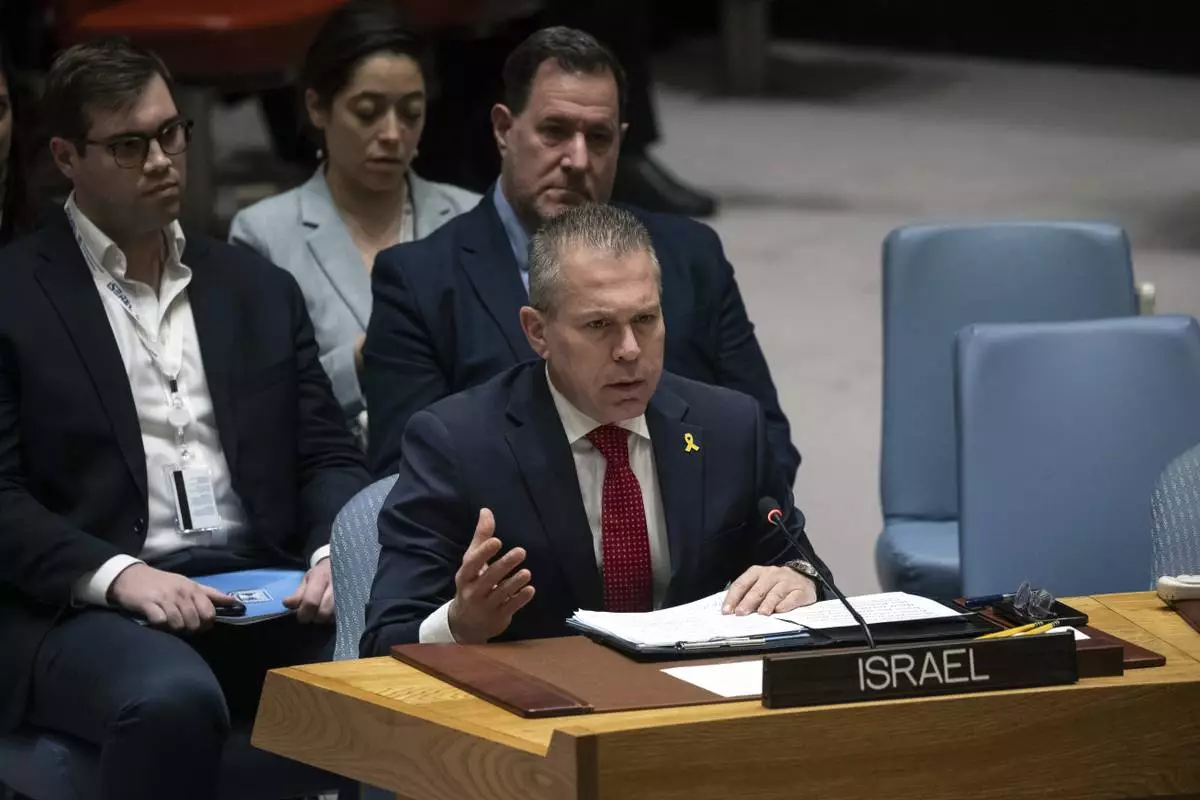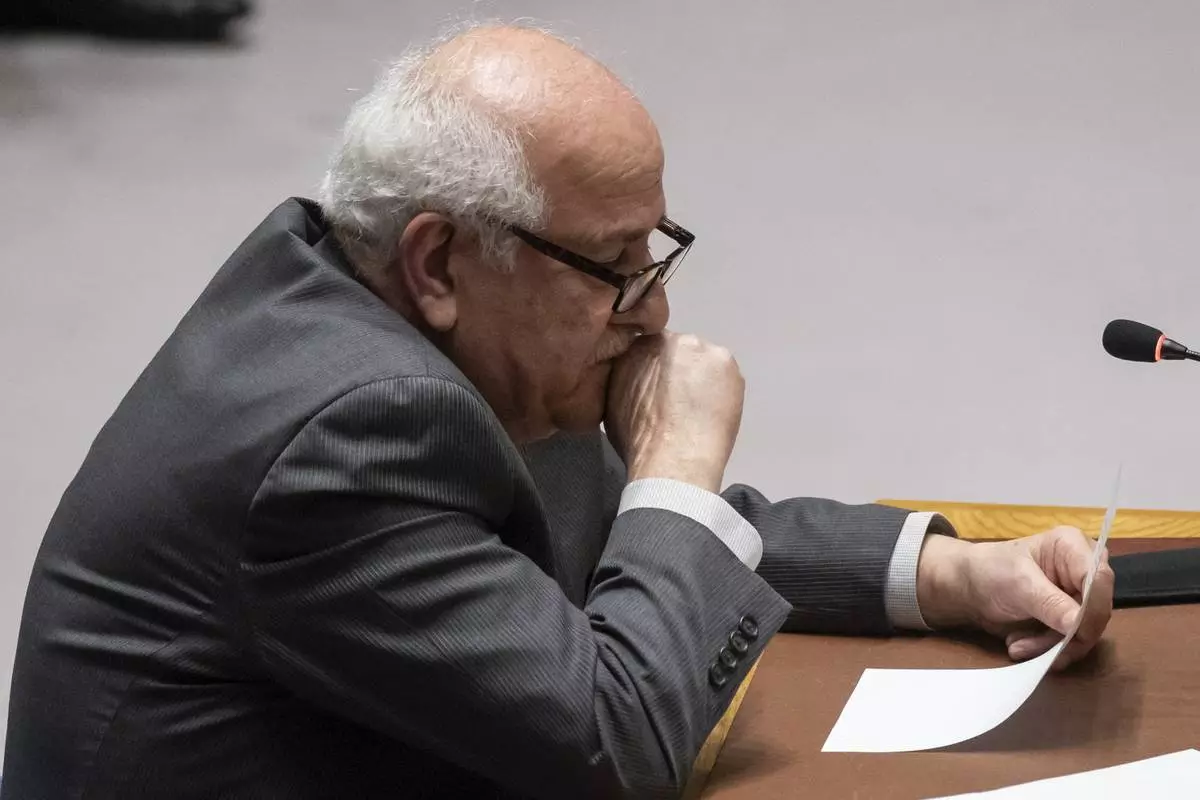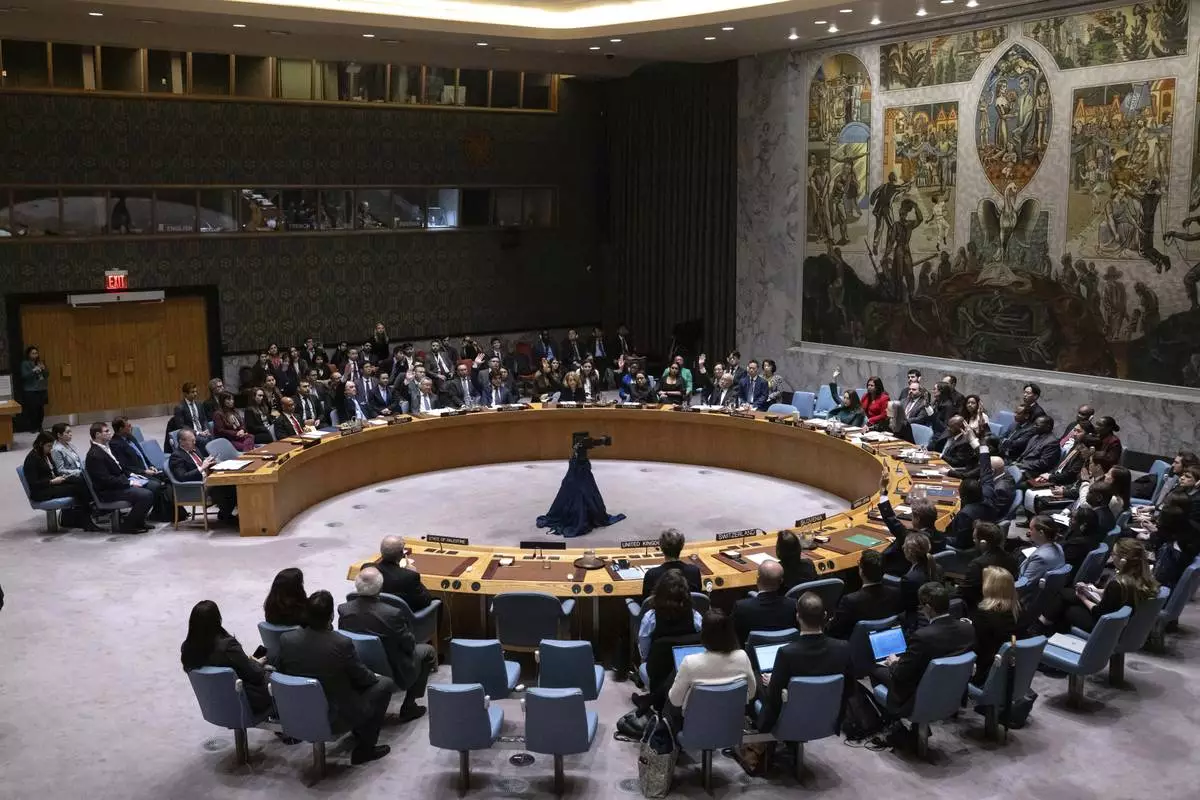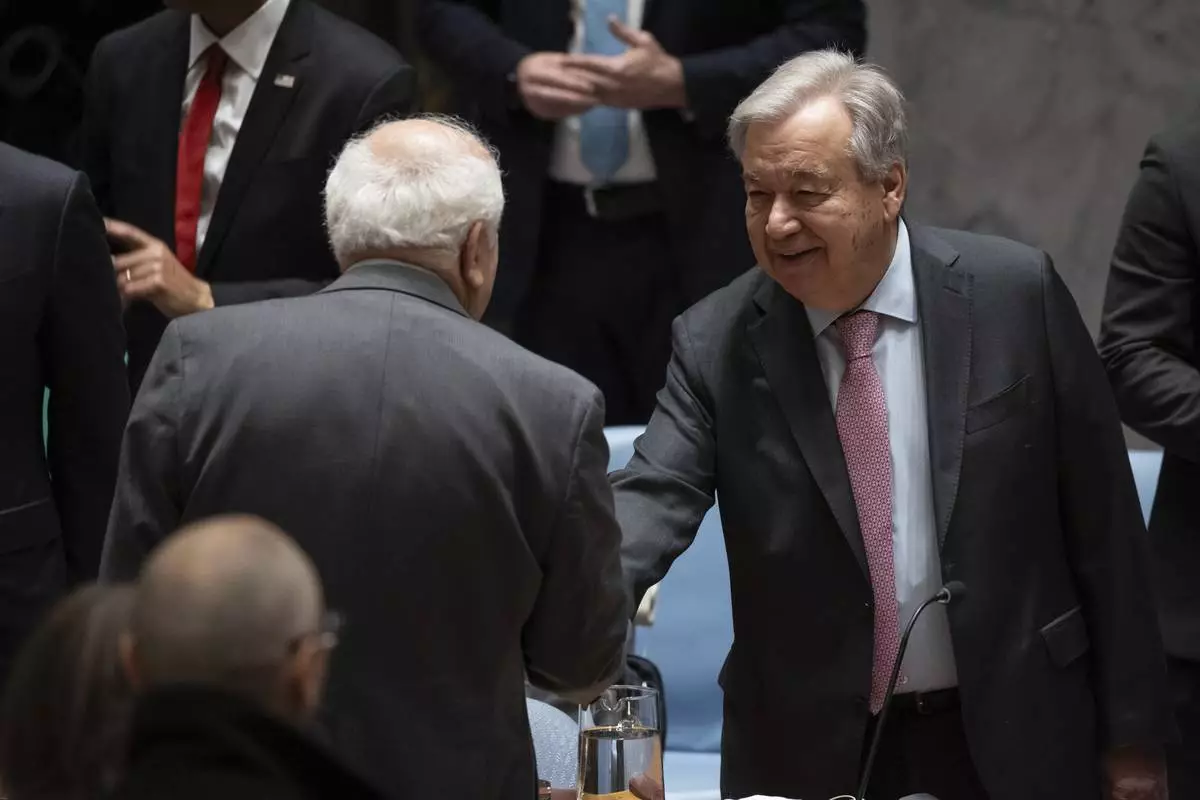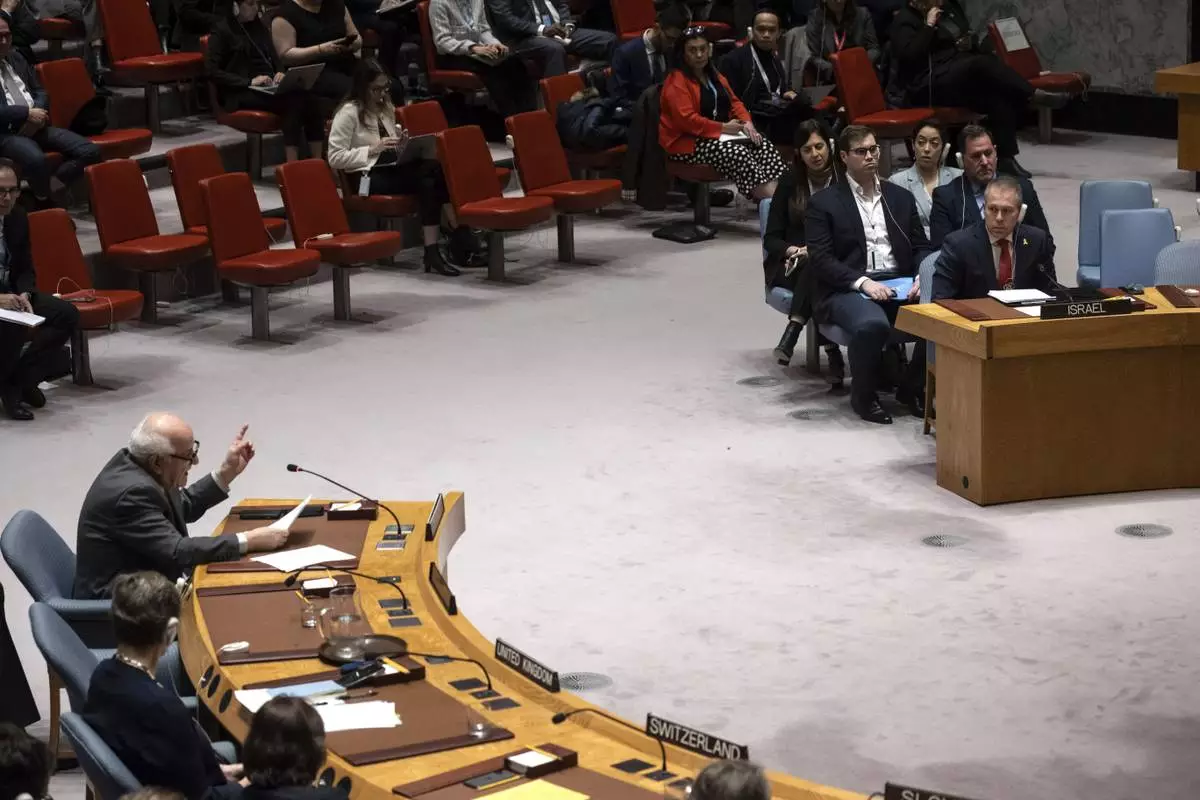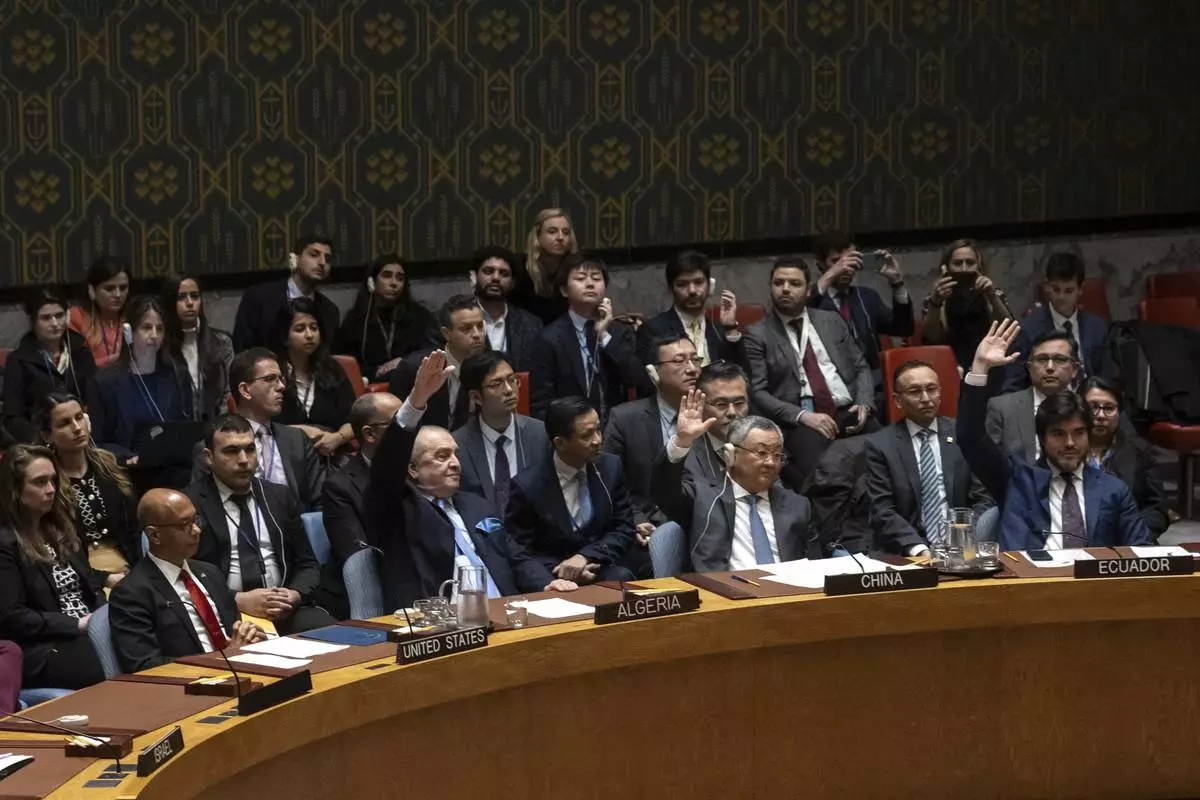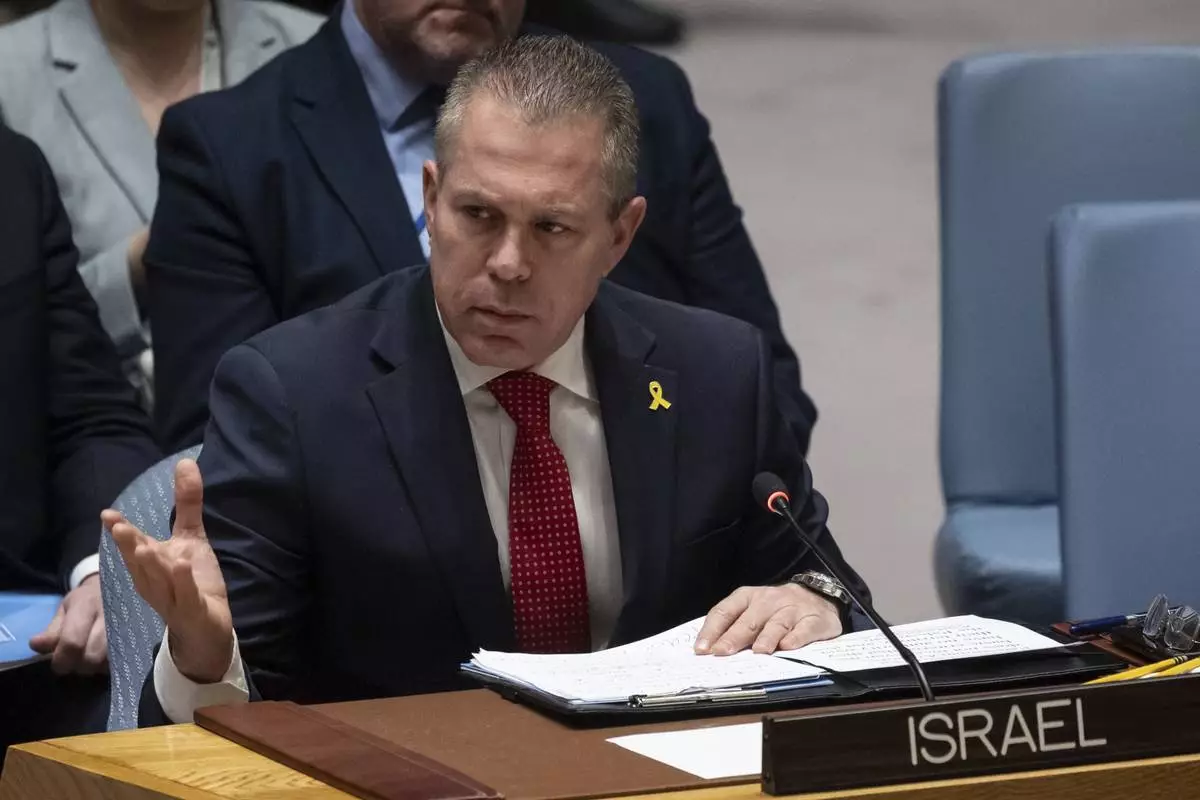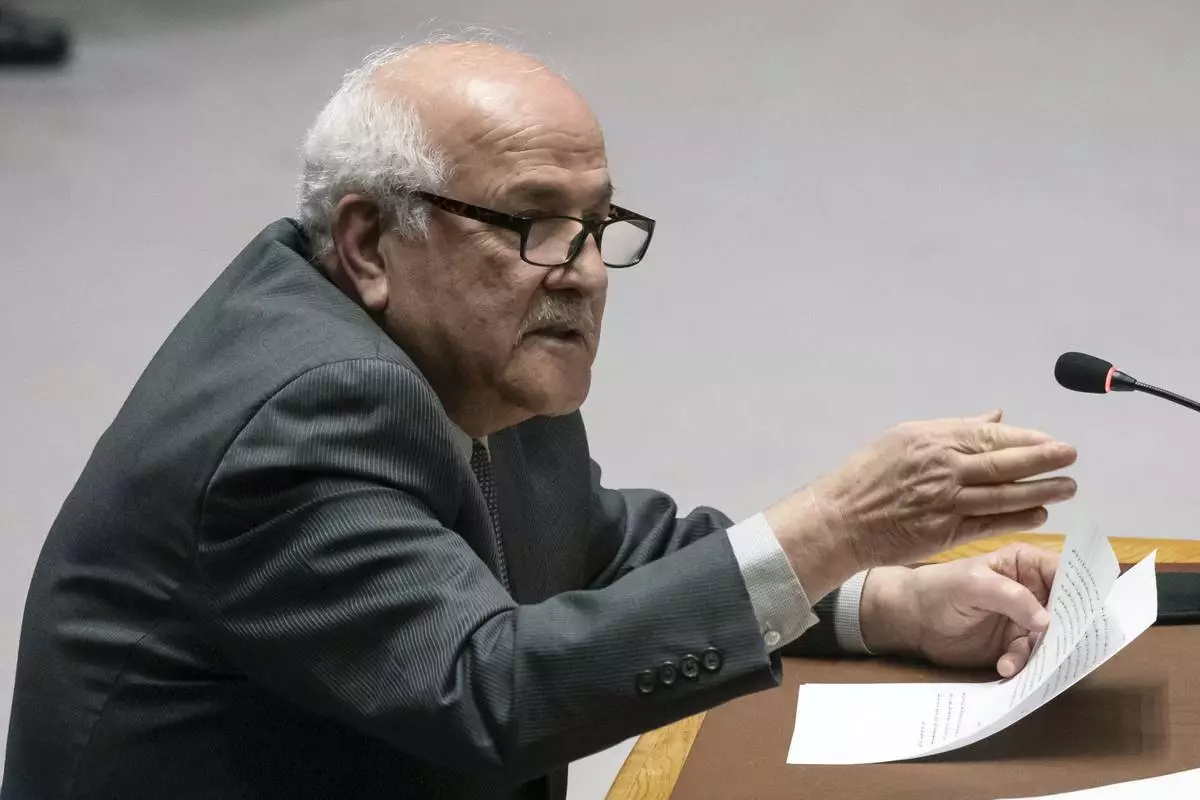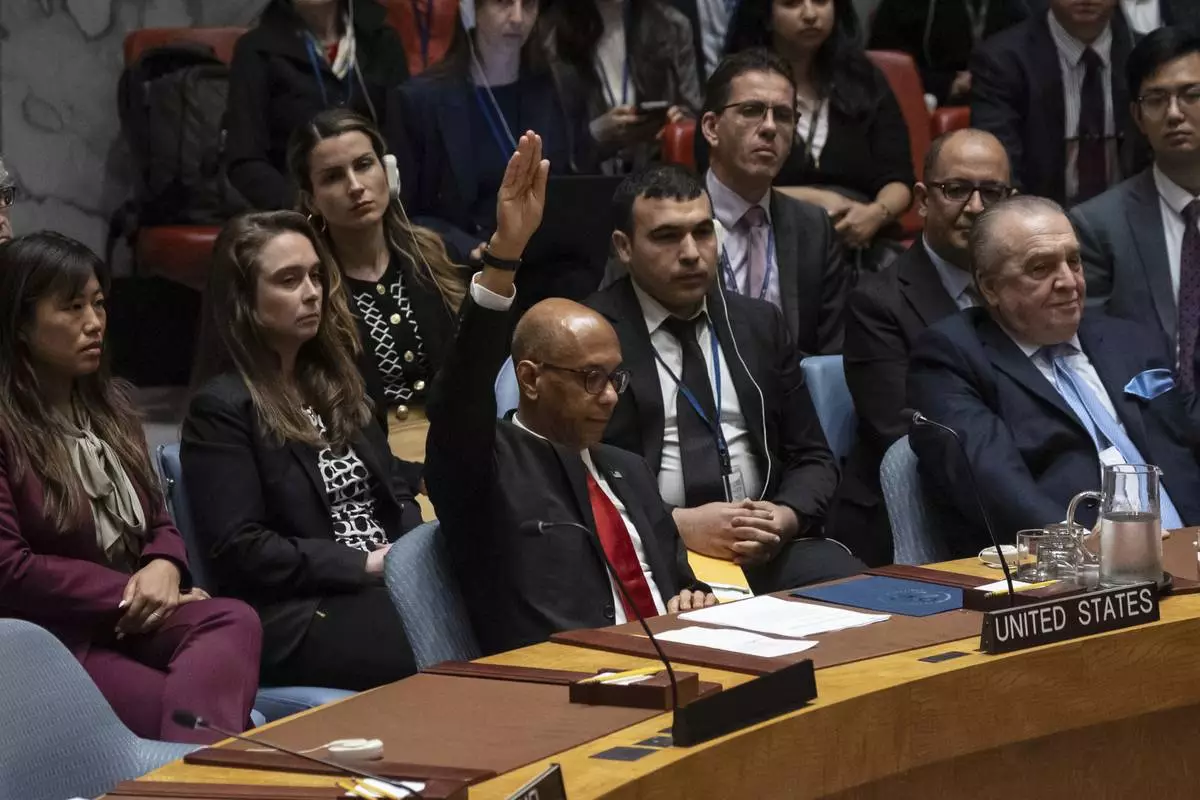It had all the makings of a massacre. Six guns, including a Colt AR-15 rifle. About 1,000 rounds of ammunition. A bulletproof vest. And an angry Southern California man who threated to kill his co-workers at a hotel and its guests.
But a concerned colleague intervened, alerting authorities who arrested 37-year-old Rodolfo Montoya, a cook at the Long Beach Marriott hotel, the next day and discovered the arsenal where he lived in a rundown motor home parked near industrial buildings.
In the weeks since three high-profile shootings in three states took the lives of more than two dozen people in just one week in August, law enforcement authorities nationwide reported a spike in tips they are from concerned relatives, friends and co-workers about people who appear bent on carrying out the next mass shooting.
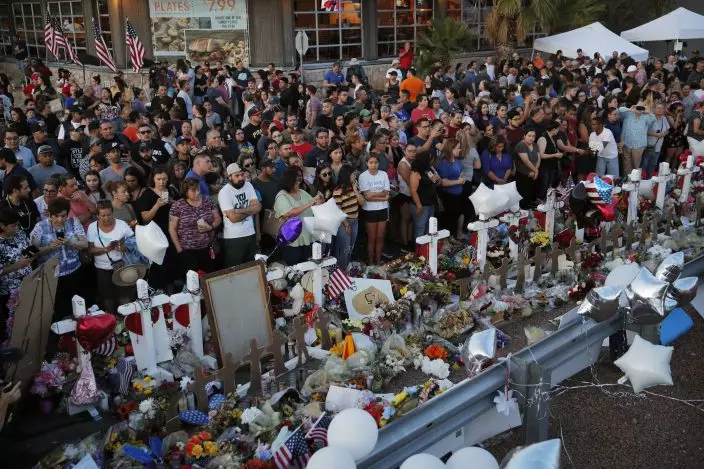
FILE - In this Aug. 6, 2019, file photo, people crowd around a makeshift memorial at the scene of a mass shooting at a shopping complex in El Paso, Texas. In the days and weeks since three high-profile shootings took the lives of more than two dozen people in just a week's time, law enforcement authorities have reported seeing a spike in the number of tips they are receiving from concerned relatives, friends and co-workers of people who appear bent on carrying out the next mass shooting. (AP PhotoJohn Locher, File)
Some of those would-be shooters sent text messages to friends or posted on social media that they hoped to one-up previous mass shootings by killing more people.
Law enforcement authorities and experts say the reasons for the increase in tips and heightened awareness of thwarted mass shootings vary.
In some cases, it's the so-called "contagion effect" in which intense media coverage of mass shootings leads to more people seeking to become copycat killers. In other cases, it's a reflection of the general public being more aware of warning signs when a friend or relative or co-worker is in an emotional crisis — and more willing to tip off police.
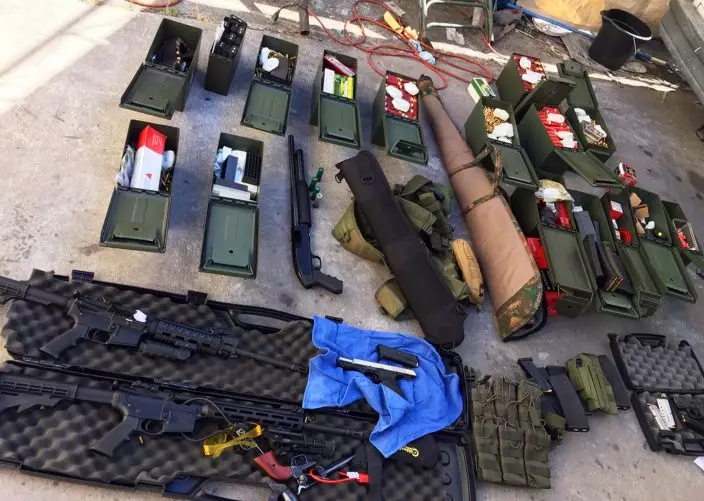
FILE - This undated file photo released Wednesday, Aug. 21, 2019 by the Long Beach, Calif., Police Department shows weapons and ammunition seized from a cook at a Los Angeles-area hotel who allegedly threatened a mass shooting. There’s been a big increase in the number of tips to U.S. law enforcement about potential mass shootings following the three shootings in August that killed 34 people. Experts say media coverage of the shootings makes the public more prone to inform on worrisome relatives or neighbors in attempts to prevent more shootings. Following the high-profile shootings in California and Texas and Ohio, tips to the FBI rose by about 15,000 each week. (Long Beach Police Department via AP, File)
On average, the Federal Bureau of Investigation receives about 22,000 tips about potential threats of violence weekly.
Following the high-profile shootings during the first week of August in Gilroy, California; El Paso, Texas; and Dayton, Ohio that killed 34 people and wounded nearly 70, the volume of calls to federal authorities increased by about 15,000 each week.
Mass shootings tend to plant the idea of carrying out a rampage or at least encourage the idea in potential mass shooters, each seeking notoriety or striving to "out-do" others with higher death tolls, said sociologist James Densley, a criminal justice professor at Metropolitan State University in St. Paul, Minnesota, who studies mass shootings and the people who perpetrate them.
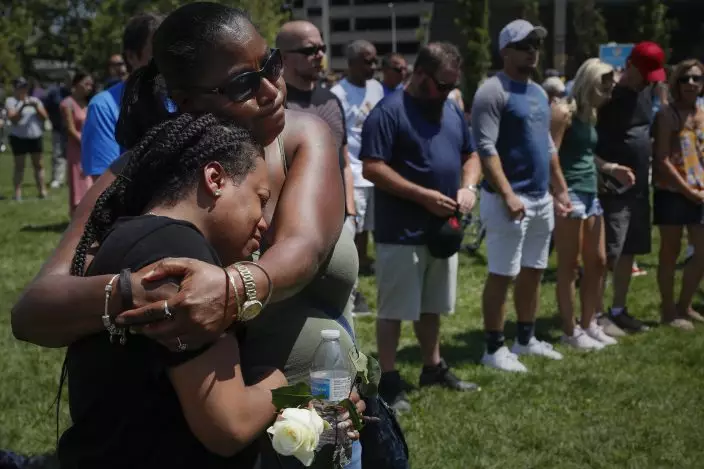
FILE - In this Aug. 4, 2019, file photo, mourners gather at a vigil following a nearby mass shooting in Dayton, Ohio. In the days and weeks since three high-profile shootings took the lives of more than two dozen people in just a week's time, law enforcement authorities have reported seeing a spike in the number of tips they are receiving from concerned relatives, friends and co-workers of people who appear bent on carrying out the next mass shooting. (AP PhotoJohn Minchillo, FIle)
And the general public in turn becomes more aware of the possibility of mass shootings, heightening people's willingness to speak out if a friend, relative or co-worker appears to be in the midst of a crisis and plotting carnage, Densley said. In addition, the media focuses not only on the actual shootings, but also on those that are foiled.
But identifying and predicting who the next shooter will be is challenging for authorities, he said.
The reason? Mass shootings remain rare events and there's no one basic profile for the gunmen. The demographics of school shooters and their motivations are vastly different from someone who carries out carnage in a place of worship. The same holds true for those who carry out workplace shootings.
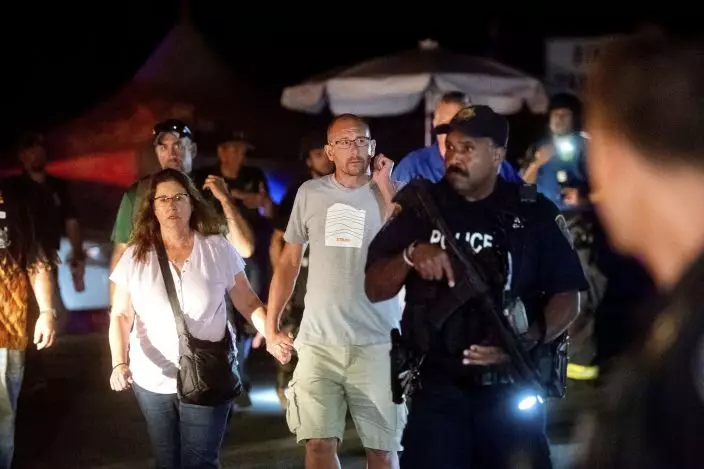
FILE - In this July 28, 2019, file photo, police officers escort people from Christmas Hill Park following a deadly shooting during the Gilroy Garlic Festival, in Gilroy, Calif. In the days and weeks since three high-profile shootings took the lives of more than two dozen people in just a week's time, law enforcement authorities have reported seeing a spike in the number of tips they are receiving from concerned relatives, friends and co-workers of people who appear bent on carrying out the next mass shooting. (AP PhotoNoah Berger, File)
"When it comes to thinking about the profile of a mass shooter what our research is starting to uncover is there's not really one profile of a mass shooter," Densley said.
But the one common thread is that there are usually warning signs in the days and weeks leading up to the shootings, with many shooters taking to social media to vent outrage at whatever is troubling them.
Greg Shaffer, a retired FBI agent who now a private security consultant specializing in active shooters and terrorism, said in an interview that the challenge for law enforcement is the juggling act of trying to balance the public's safety while not trampling on Americans' constitutional rights. For example, at what point does a troubling social media post constitute an illegal threat versus simple venting that's protected by the First Amendment?
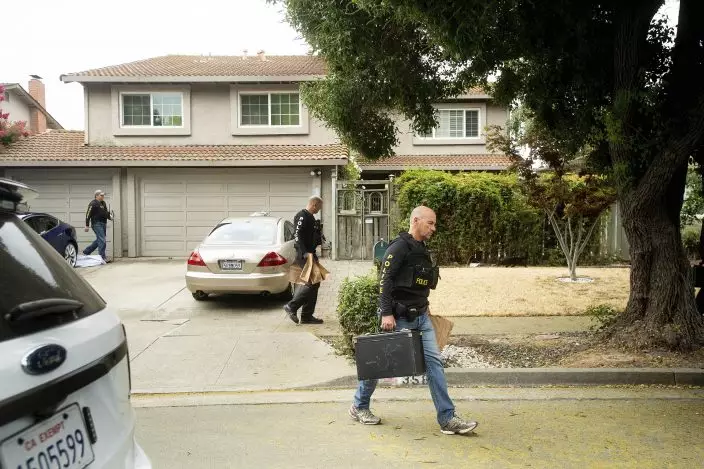
FILE - In this July, 29, 2019, file photo, police officers carry evidence bags from the family home of Gilroy Garlic Festival gunman Santino William Legan, in Gilroy, Calif. In the days and weeks since three high-profile shootings took the lives of more than two dozen people in just a week's time, law enforcement authorities have reported seeing a spike in the number of tips they are receiving from concerned relatives, friends and co-workers of people who appear bent on carrying out the next mass shooting. (AP PhotoNoah Berger, File)
"The real rub is where do you draw the line between First, Second and Fourth Amendment rights?" he said. "We allow hate speech. It's freedom of speech. Where do you decide that it's no longer posturing and now it's a threat? ... At what point do you crash his pad and take away his guns? You can't be the thought police."
Shaffer added: "That's the hard part in law enforcement. You don't want to trample those ... rights because it's vital to our institution."
The other challenge is more practical, said Houston Police Chief Hubert Acevedo. It's impossible for law enforcement in real time to pore over social media posts and quickly isolate those showing that someone poses a real threat.
"There's just so much traffic on social media, in cyberspace, that it's like looking for a needle in a haystack," said Acevedo, the president of the Major Cities Chiefs Association representing police chiefs and sheriffs for the largest U.S. and Canadian cities.
The public's cooperation — and their willingness to risk angering a friend, relative or co-worker by informing on them— is key to stopping mass shootings ahead of time, he said.
In Long Beach, California, where police disrupted the possible plans to carry out the hotel attack, Police Chief Robert Luna thanked hotel staff for warning investigators.
"Instead of us visiting each other in hospitals or making funeral plans," Luna said, "we can talk about the courage you showed."
Luna said in an interview that his department often handles threats of mass shootings but the Marriott case was unusual because Montoya, a cook upset over human resources issues, had the guns and ammunition to carry out his plans plus equipment authorities believe could be used to make ammunition.
"All the ingredients were there for a catastrophe," Luna said.
Montoya has been jailed for lack of $500,000 bail and has pleaded not guilty to charges of criminal threats, dissuading a witness by force or threat and possession of an assault weapon. He faces more than five years in prison if convicted.
Luna said after the 2018 school shooting in Parkland, Florida, that left 17 people dead, authorities investigated an increase in threats to Long Beach schools. Officials decided to send detectives immediately to schools — an expensive move the chief said was "absolutely worth it."
Nothing happened at the Long Beach schools, but Luna said he didn't want to risk ignoring the threats.
Luna welcomes the increase in tips to authorities about potential mass shooters, saying Long Beach residents have followed the "see something, say something" guidelines and report suspicious behavior to police.
"There are people, thank God, that are speaking up," he said. "It's not only 'see something' but if you hear something, if you read something, you absolutely have to say something."



